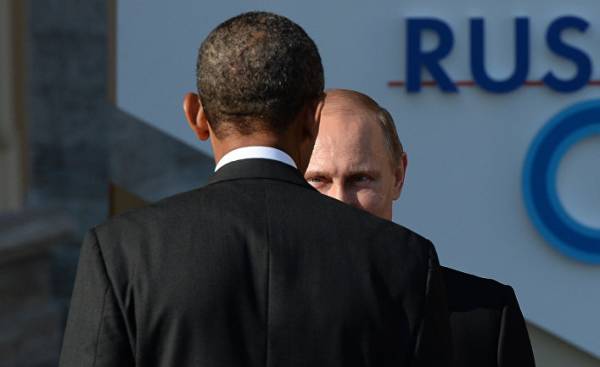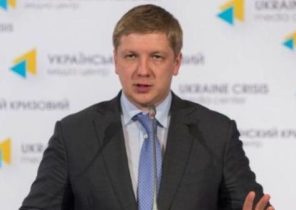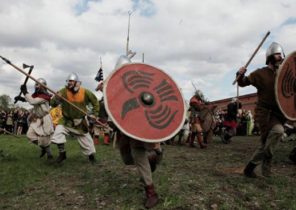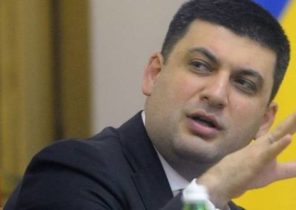
Thinking about Frank Moscow’s intervention in the U.S. presidential election and the continuing attempts of the administration to trump to formulate a coherent policy towards Russia, accompanied by simple but haunting question: who lost Russia? How is it that of a young democracy that emerged after the collapse of the Soviet Union, Russia has become an authoritarian aggressor with which we have to fight today?
Some blame Obama. Others blame George Bush. Someone sees the reason for the expansion of NATO, some in the Washington consensus, or not sufficiently generous assistance in the 1990-ies. However, attempts to explain these reasons are only a result of classic American solipsism. In fact, no one “lost” Russia: the US government was not able to prevent the Kremlin to embark on revanchist way. Until we recognize this truth, our policy towards Russia will remain ineffective.
For examples of this game finding fault is not far to seek. You can just read the next tweet of the President of trump: “For the past eight years, Russia has “pressed” President Obama, becoming stronger and stronger, took the Crimea and increased the number of missiles. Weak!” A more substantial criticism of US policy brings us even further into the past. Many experts in Russia accused Washington that he in some way contributed to the economic and political turmoil that swept Russia in the 1990-ies — either by not providing enough generous help, either, according to Joseph Stiglitz (Joseph Stiglitz), imposing Russian capitalism “shock therapy”. As a result, according to these experts, the ensuing chaos led to the rise to power of the country, Vladimir Putin — authoritarian “Savior” covered by the historical resentment and professing nationalist revanchism.
Economic turmoil and the instability of the 1990s years have really made Russia fertile ground for the flowering of autocracy. Putin himself has repeatedly referred to the alleged humiliation that had to go through Russia in the 1990-ies, including their justification for centralization of power. However, this argument has serious historical precedent. It is believed that the feeling of humiliation and chaos that engulfed Germany after the First world war, became one of the main factors in Hitler’s rise to power, and bloodshed during the French revolution became the immediate cause of the rise of Napoleon.
However, the circumstances were such that no money, no tips, or even a more “gradual” introduction of market mechanisms could not prevent sclerotic, overly industrialized Soviet economy to make rapid and chaotic transition to capitalism. Perhaps a more carefully designed policies of assistance and advice in the early and mid 1990-ies — when the trajectory of Russia was the most flexible and amenable to influence — could help to lead Russia in a different economic and political path. But the probability of this was negligible. The collapse of the Russian economy began in the 1980-ies. Writes Stephen Kotkin (Stephen Kotkin) in his book “Armageddon Averted” (Armageddon Averted), 1990-ies should be considered as the result of long, indiscriminate the collapse of the Soviet economic system, which was launched by Mikhail Gorbachev. In addition, if the U.S. government provided Russia with more generous assistance to mitigate the transition (a chimerical “Marshall Plan” for Russia), or one of our partners in Russia — not the hapless President Boris Yeltsin nor the corrupt oligarchs would not want and would not be able to effectively use this help.
Economic shocks have become only one aspect of the chaos of the 1990-ies. Another aspect was the lack of security in Russia: war in Chechnya, the rise of organized crime and the feeling of utter lawlessness. These two factors (economic shocks and insecurity) has provided a major impetus to the return of dictatorship.
Meanwhile, although we may tend to exaggerate the influence of the US on economic and political behavior of such a large and awkward powers like Russia, all the above does not mean that the actions and decisions of the United States can not influence the trajectory (and foreign policy) of other large States. US policy can in part affect the processes in other countries. The problem is that we don’t know when and where there will be such opportunities, so we need to do our best. In the case of Russia, the chaos of the 1980-ies and 1990-ies prevented us to catch the turning points and limited the ability of the United States to face the powerful forces of history, so we should not blame myself for the events of 1990-ies Russia has become a democracy along Western lines.
It is now crucial to recognize this reality, because if we recognise that Russia itself followed the path to the restoration of autocracy, we will cease to amaze its current aggressive foreign policy. There is a strong historical link between the lack of security in Russia and the fear of chaos (which necessitates the establishment of the dictatorship) and a feeling of insecurity in the geopolitical arena because of the lack of natural barriers (which leads to an expansionist foreign policy, justified by the need to prevent attack from the outside).
Expansionism was the norm, starting with Ivan the terrible (captured Siberia in the 16th century) and Catherine the great (annexed Crimea in the 18th century) and ending with Stalin (which have expanded control over Central and Eastern Europe in the 20th century). Putin wove this story into his own expansionist concept, particularly in their desire to establish control over the “near abroad”, that is, on the former Soviet republics, such as Ukraine, Georgia, Moldova and the Baltic countries, turning them into a buffer between Russia and its alleged enemies.
Furthermore, external enemies play a key role in the preservation of autocracy in the country, helping the regime to enlist the support of the people and distracting people from repressive government policies and a weak economy. The tendency of Putin to blame the US is no different from the worldview of the leaders of the Soviet Union, which, in 1947, George Kennan (George Kennan) wrote in his essay “Sources of Soviet conduct”: “There is every reason to believe that the emphasis on the threat of Soviet society from the outside world due not to the real existence of antagonism and the necessity of retaining within the country a dictatorial regime.”
Given all this historical context, what other policy can we expect from Putin — nationalist autocratic tendencies, rising at the head of the country after the turmoil of the 1990s years — except hostility to the West and the desire to restore Moscow’s control over neighboring States?
If we recognize that U.S. policy could do to influence the trajectory of movement of Russia, we will be able to challenge another serious criticism of the United States, namely the assertion that NATO expansion in Central and Eastern Europe — in 1999 and 2004 — has provoked the aggressive behavior of the bear. Such criticism, as, for example, John Mearsheimer (John Mearsheimer), claim a direct connection between today’s aggressive behavior of Russia in Ukraine and in other countries and the alleged “original sin”, ie the expansion of NATO to the East. However, the reality is otherwise. In making this argument, these critics are actually saying that external events, such as NATO expansion, have a more powerful influence on the policy of the Kremlin than the internal evolution of Russia.
Actually it is very good that we expanded NATO borders. Given the revanchist policy of Russia, fueled by internal processes, on which the West cannot influence, the expansion of NATO ultimately served as a counterweight to Russian expansionism, rather than its catalyst. And the fact that after Russia is back on its feet in 2000 years, it has invaded two neighboring States, which were not under the protection of NATO (Ukraine and Georgia), without touching at the same time Poland and the Baltic States (members of NATO), not a mere coincidence.
Without NATO, Central and Eastern Europe probably also unlikely would live peacefully, if we consider that the population of these countries in the past have taken a rather proactive approach. Like thousands of Ukrainians, who, despite the cold, came out to protest Euromaidan 2014, the vast majority of the inhabitants of the countries of Central and Eastern Europe understandably wanted to be part of the modern “West”. Without NATO, which would guarantee their safety, they could take the path of confrontation with Russia, as happened with Ukraine.
All this deprives the argument of trump about the “weakness” of Obama’s meaningless. Blaming Obama for Putin’s aggression — so frankly to ignore the fact that Russia invaded Georgia in 2008 during the administration of George W. Bush. So, if you count Putin’s invasion in Ukraine as a consequence of the weakness of Obama, it would be fair to demand that Putin’s invasion of Georgia was considered a consequence of the weakness of Bush.
More importantly, if we lay all the blame on Obama, it turns out that we ignore the nature of Russian-American relations in the 2000s years, during which initially wary of friendly relations between Putin and Bush created after the September 11 tragedy, has slipped to slow antagonism after the war in Iraq and the second round of NATO enlargement. At the Munich security conference in 2007, Putin voiced his dissatisfaction with the policy of the United States, and in 2008 at the NATO summit in Bucharest, he openly expressed his attitude to Ukraine as a vassal of Russia, stating, referring to Bush that “Ukraine is not even a state”. Someone can say that Obama should stand up to more hard line against Russia to deter Putin, but antagonistic views of the Kremlin — and even Putin’s plans in Ukraine — was formed long before the arrival of Barack Obama to power in the United States.
It is essential for us to refuse these searches is to blame, if we want to formulate effective and adequate policy towards Russia. The accusation that we provoked Russia to aggressive behaviour or was insufficiently rigid in relations with the Kremlin, distort the current debate, forcing one side to cling to the illusory “Grand bargain” with Russia to reduce the level of tension and the other trying to win the top prize for “the hard approach” to Moscow. Such fluctuations in the debates lead our allies and supporters of Russia in turmoil, making it difficult for them to understand our intentions.
Instead, we must accept the fact that our antagonism with the Kremlin will continue in the foreseeable future, and try to develop a clear, coherent and rational response that will allow us to work with the Kremlin where our interests overlap, and confront him, where his actions can prevent our key interests (including the European system of security and independence of States bordering Russia). We should not bring the key interests in the victim a certain vague promises of “cooperation” in order to just “get along”, he loves to talk trump.
Recently, after his return from Moscow, Secretary of state USA Rex Tillerson (Rex Tillerson) said that the relations between our countries are at a low level. But this should not be a reason for hasty action. If we try to compile a list of areas where we can cooperate with Russia, it will be very short (limited exchange of intelligence on terrorism, and minimal cooperation in Syria). The assumption that tense relations between the US and Russia somehow, we are guilty and therefore we must urgently take action is wrong and counterproductive.
Putin masterfully knows how to find weaknesses in his opponents and openly to use them. He learned to effectively apply in practice the aphorism of Lenin: “Push hard with the bayonet. If the bayonet will rest on the steel, back off. If you feel the flesh…” Putin will “push” at every possible opportunity, causing problems and forcing us to meet his attempts to “steel”.
Since strengthening the army of Ukraine and protection systems in the Baltic States and ending with the tightening of sanctions against Russian leaders, we must not doubt our ability to contain Russia and prevent its aggression. And we shouldn’t blame ourselves that we were in such a situation.







